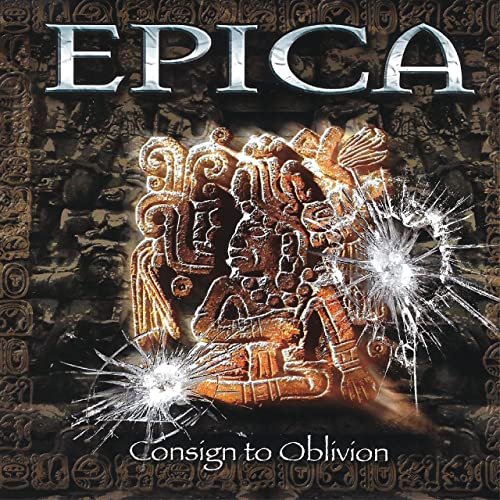

Soule's melodic talents were the predecessor's redeeming factor and they also save the day here, at least to a degree. This soothing, meandering tone was already present on Oblivion, but Skyrim can rely on stronger melodic material than its predecessor. Arguably, all of these features are fitting to portray the game's wondrous, frozen landscape, but they also result in a graceful, yet indistinct fog of sounds. Orchestral textures are quiet static, orchestrations and dynamics remain similar throughout the album and the atmosphere within pieces rarely changes much. But the generally mood of the score remains as lyrical as on Oblivion, even though it's less pastoral. The title distinguishes itself from its predecessor through its chillier tone that dutifully reflects the game's setting, usually through the addition of icy, floating female choirs. A gentle ebb and flow softly carries the compositions to their conclusion, which is usually not far from there they started. The mood is generally calm and grave, sometimes tending towards solemn expressions of understated grandeur. How's that? During most of its running time, Skyrim plays like an extension and slight variation of Oblivion's semi-ambient style: pieces slowly unfold, led by lovingly crafted, languorous melodies that are usually provided by strings or solo woodwind. So, is Skyrim the glorious, genre-defining entry into the Hall of Fame of Western game music that so many hoped it would be? The answer is frustratingly ambiguous: sometimes the title comes close, but ultimately it misses that lofty mark by a mile. At the same time, discussions arose around the soundtrack's considerable buying price of $30, which necessitated the question: was such an extensive release of Skyrim's music justified from a musical point of view or was it rather a way to cash in on people's excitement? This was one of game music's biggest composers, writing what might be the longest album release in Western game history for the next instalment of the most popular Western RPG franchise. Inevitably, the already considerable buzz around the score went into overdrive. In any case, nobody could accuse Skyrim's soundtrack of being too slim: some days before the official announcement, a glitch on Soule's online music store DirectSong revealed that Skyrim's soundtrack would be sold as a gargantuan four CD release. Fortunately, this issue was less of a problem in an album context that detached Soule's music from the games, and particularly the former remains one of Soule's better high-fantasy scores. Soule's soundtracks for Morrowind and Oblivion still remain favourites among many game music fans, although both scores have been frequently accused of being too short to properly accompany their vast games.

The title took the free-wheeling RPG gameplay that the Elder Scrolls franchise is known for to new, dazzlingly complex heights, but early buyers also had to put up with a range of sometimes game breaking bugs (and the occasional backwards-flying dragon).Īs highly anticipated as the game itself was Jeremy Soule's score. Japanese magazine Famitsu even handed out its first perfect score for a Western game. The game's critical reception was equally ecstatic, with many publications declaring Skyrim a sure-fire contender for Game of the Year. Sales figures easily surpassed those of million-sellers Oblivion and Morrowind and, about a month after the game's release, stand at almost seven million copies. The general hype around the game built up throughout 2011 and finally culminated on November 11. Easily one of the most anticipated Western RPGs of this current console generation, The Elder Scrolls V: Skyrim followed five years after its revered predecessor Oblivion had been released.


 0 kommentar(er)
0 kommentar(er)
